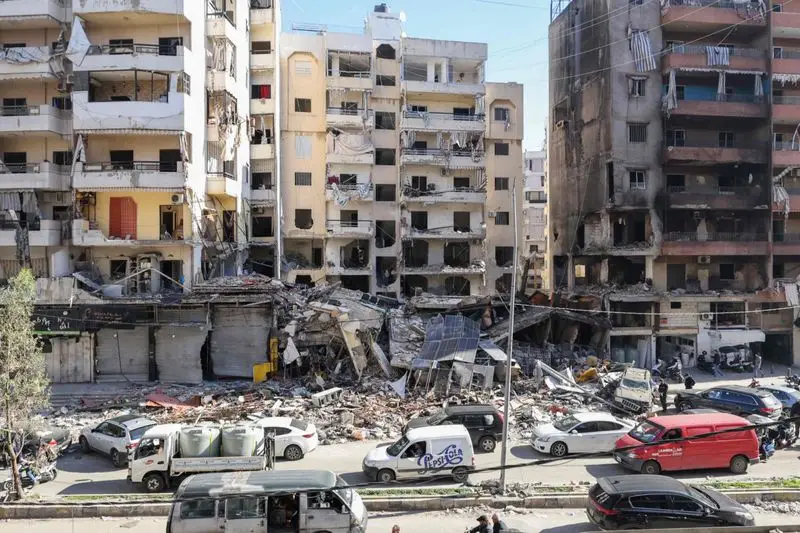Tensions escalated in southern Lebanon on Monday as Israeli airstrikes killed nine people in the region, threatening the fragile ceasefire in place since last Wednesday. The strikes targeted Hezbollah strongholds following an attack claimed by the Iran-backed militant group, which Israel denounced as a “serious violation” of the truce.
Israel’s military reported hitting “dozens of Hezbollah terrorists, launchers, and terrorist infrastructure throughout Lebanon” in response to projectiles fired at its border positions. Prime Minister Benjamin Netanyahu pledged a “forceful” response to any breach of the ceasefire, while Defense Minister Israel Katz echoed his warning of “harsh consequences.”
Ceasefire Violations and Accusations
Lebanon’s health ministry confirmed that five people were killed and two wounded in Haris, while another four fatalities and one injury occurred in the village of Tallous. The strikes followed an attack earlier in the day by Hezbollah, which targeted Israeli positions in the disputed Shebaa Farms region.
Nabih Berri, Lebanon’s parliamentary speaker and a mediator in the ceasefire negotiations, accused Israel of violating the agreement with its “aggressive actions.” In contrast, Israeli Foreign Minister Gideon Saar argued that the strikes were necessary to enforce the truce and counter Hezbollah’s alleged breaches, including moving weapons in prohibited areas south of the Litani River.
“Hezbollah’s presence south of the Litani is the most basic violation of the understandings,” Saar stated. Under the ceasefire terms, Hezbollah fighters were required to withdraw from the region, with oversight from Lebanese forces and United Nations peacekeepers.
International Calls for Restraint
French Foreign Minister Jean-Noel Barrot called for all sides to honor the ceasefire during a discussion with his Israeli counterpart. Meanwhile, the United States, chairing a committee to monitor compliance with the agreement, expressed cautious optimism about the truce’s continuation despite mounting violations.
A Lebanese army soldier was wounded by an Israeli drone strike in eastern Lebanon on Monday, an incident Israel said it was investigating. The situation remains volatile, with both nations trading accusations of undermining the fragile agreement.
Escalating Regional Tensions
The current conflict reignited in September as Israel shifted its focus to securing its northern border against Hezbollah after months of cross-border exchanges. These attacks were partly in support of Hamas following the Palestinian group’s October 7, 2023, assault on Israel.
Under the ceasefire terms, Israeli forces are to withdraw from southern Lebanon within 60 days, while the Lebanese army and UN peacekeepers take over security responsibilities. However, with over 50 reported violations of the agreement, skepticism over its durability persists.
Humanitarian Impact
The latest strikes add to the mounting toll on civilians in southern Lebanon, where thousands have been displaced since the conflict began. Health officials and aid organizations have repeatedly warned of a deepening humanitarian crisis as violence threatens to spiral out of control.
The fragile truce hangs by a thread, with regional stability at stake. Both Israel and Hezbollah face international pressure to uphold the agreement, but the road ahead remains fraught with challenges.





